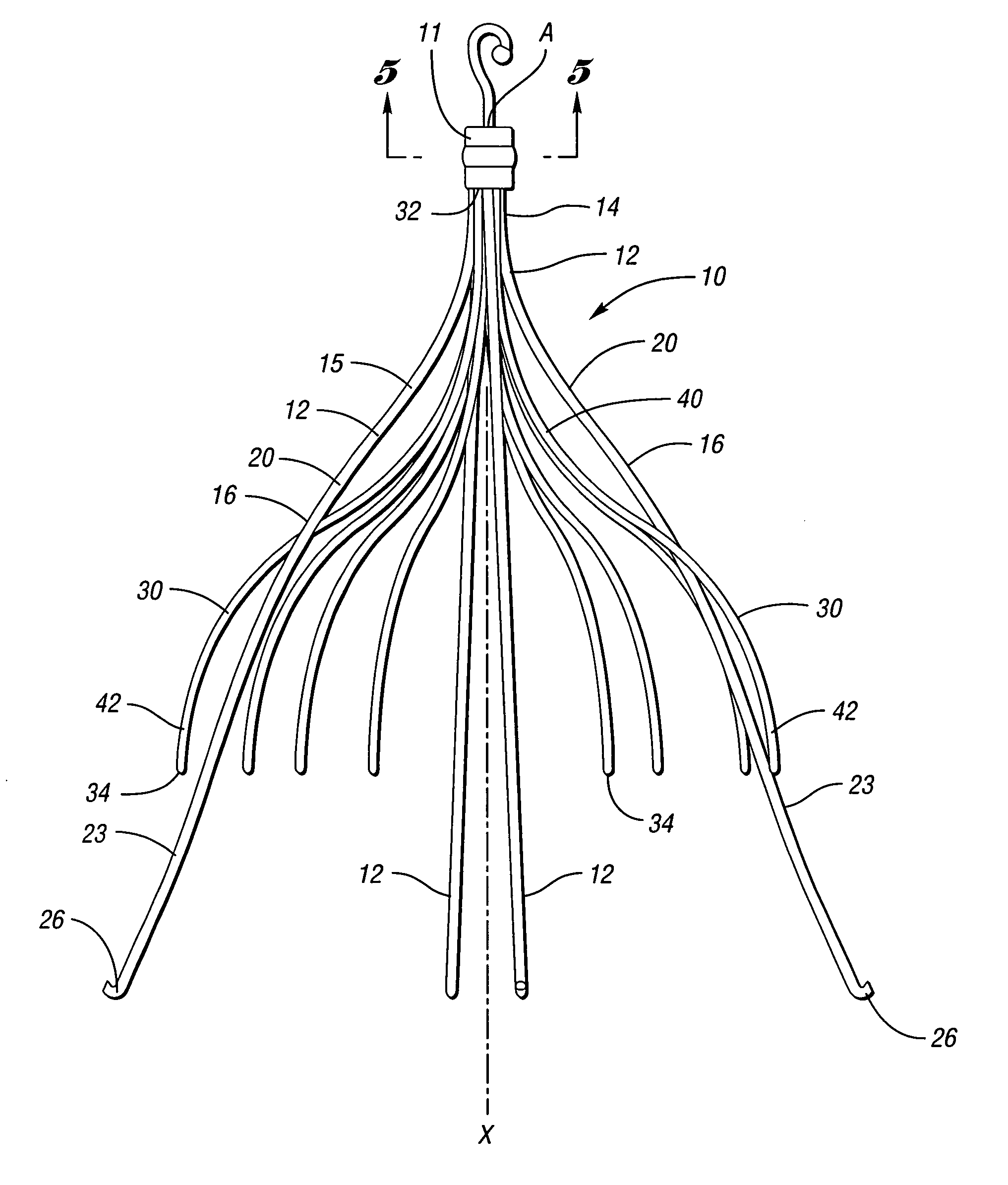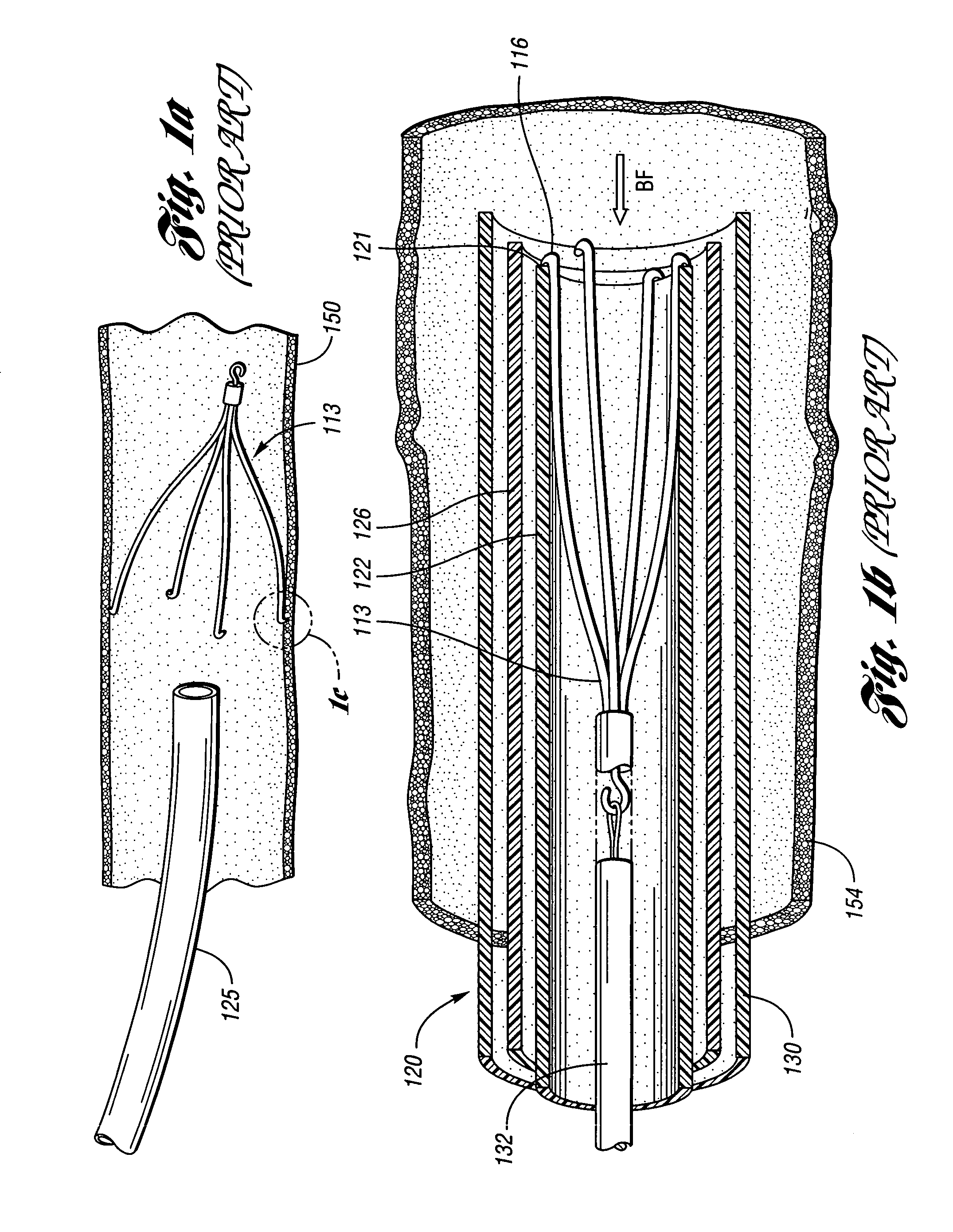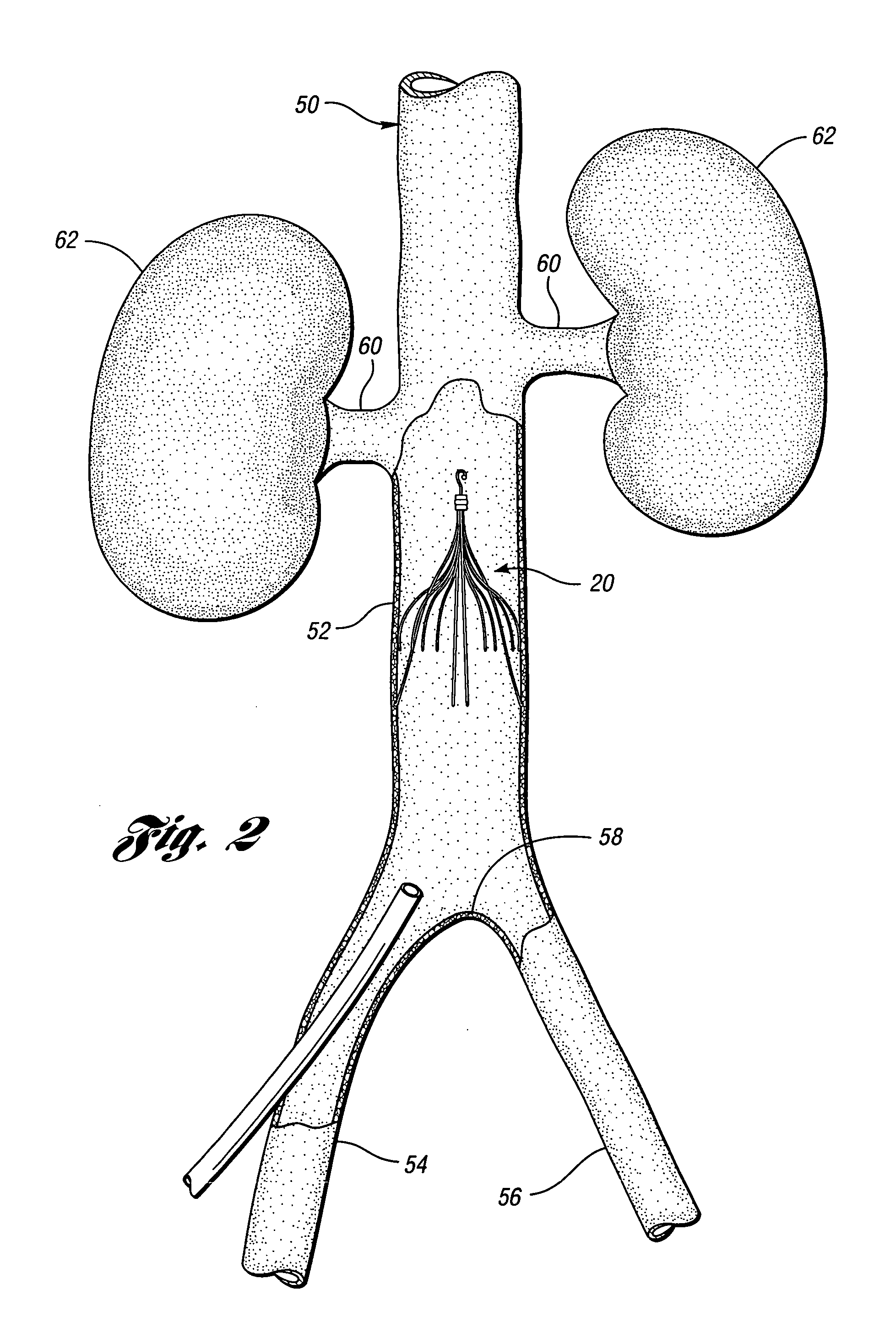Removable vena cava filter having inwardly positioned anchoring hooks in collapsed configuration
a vena cava filter and inwardly positioned technology, applied in the field of medical devices, can solve the problems of filter generally not being considered to be removable from patients, thrombosis a serious risk of pulmonary embolism, downstream embolism or embolization, etc., to reduce the risk of scraping or tearing, reduce the likelihood of undesirable scratching or scraping, and facilitate delivery
- Summary
- Abstract
- Description
- Claims
- Application Information
AI Technical Summary
Benefits of technology
Problems solved by technology
Method used
Image
Examples
Embodiment Construction
[0035] In accordance with one embodiment of the present invention, FIG. 2 illustrates a vena cava filter 10 implanted in the vena cava 50 for the purpose of lysing or capturing thrombi carried by the blood flowing through the iliac veins 54, 56 toward the heart and into the pulmonary arteries. As shown, the iliac veins 54, 56 merge at juncture 58 into the vena cava 50. The renal veins 60 from the kidneys 62 join the vena cava 50 downstream of juncture 58. The portion of the vena cava 50, between the juncture 58 and the renal veins 60, defines the inferior vena cava 52 in which the vena cava filter 10 has been percutaneously deployed through one of the femoral veins. Preferably, the vena cava filter 10 has a length smaller than the length of the inferior vena cava 52. If the lower part of the filter extends into the iliac veins, filtering effectiveness will be compromised and if the filter wires cross over the origin of the renal veins the filter wires might interfere with the flow o...
PUM
 Login to View More
Login to View More Abstract
Description
Claims
Application Information
 Login to View More
Login to View More - R&D
- Intellectual Property
- Life Sciences
- Materials
- Tech Scout
- Unparalleled Data Quality
- Higher Quality Content
- 60% Fewer Hallucinations
Browse by: Latest US Patents, China's latest patents, Technical Efficacy Thesaurus, Application Domain, Technology Topic, Popular Technical Reports.
© 2025 PatSnap. All rights reserved.Legal|Privacy policy|Modern Slavery Act Transparency Statement|Sitemap|About US| Contact US: help@patsnap.com



